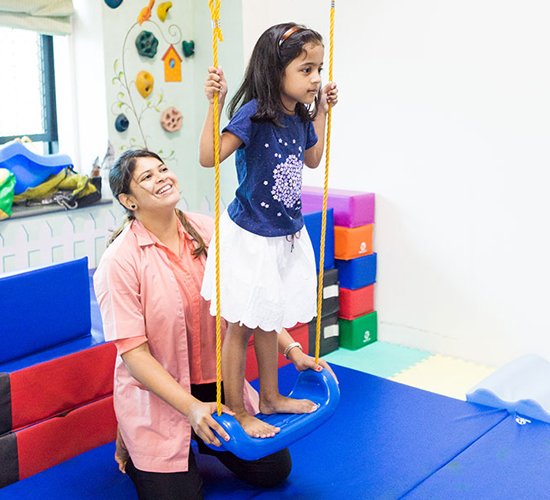Welcome To Our Clinic !
An occupational therapist (OT) is a healthcare professional who helps individuals of all ages develop, recover, or maintain the skills needed for daily living and working. The primary goal of occupational therapy is to enable people to participate in the activities of everyday life, which can range from self-care and productivity to leisure activities.
One of the fundamental aspects of an occupational therapist’s role is to assess and address the physical, psychological, and environmental needs of their clients. This comprehensive approach ensures that therapy is tailored to the individual's specific challenges and goals. Occupational therapists work with a diverse clientele, including children with developmental disorders, adults recovering from injuries, and elderly individuals experiencing age-related declines.

In pediatrics, occupational therapists often assist children with developmental delays, sensory processing issues, or conditions such as autism and cerebral palsy. They help these children develop fine motor skills, hand-eye coordination, and basic self-care abilities like dressing and feeding. By creating engaging and therapeutic activities, OTs promote skills that enhance the child's ability to participate in school and social settings.
For adults, occupational therapists frequently work with individuals recovering from injuries, surgeries, or medical conditions such as stroke, arthritis, or traumatic brain injury. They design rehabilitation programs that help restore physical function, improve cognitive abilities, and adapt activities to accommodate any remaining limitations.
This might involve exercises to regain strength and dexterity, strategies to improve memory and problem-solving skills, or modifications to the home and workplace to ensure safety and accessibility.
Occupational therapists also play a vital role in assisting elderly individuals to maintain their independence and quality of life. They address issues related to aging, such as decreased mobility, vision and hearing impairments, and cognitive decline. Through personalized interventions, OTs help seniors perform daily activities like cooking, bathing, and managing medications, enabling them to live more independently and safely.


In addition to direct therapy, occupational therapists often collaborate with other healthcare professionals, such as physical therapists, speech therapists, and doctors, to provide a holistic approach to patient care. They also educate and train family members and caregivers, ensuring they are equipped with the knowledge and skills to support their loved ones effectively.
Occupational therapists also focus on environmental adaptations and the use of assistive technology. They recommend modifications to the home, school, or workplace to create a supportive environment that maximizes the individual's ability to function independently. This might include installing grab bars in a bathroom, recommending ergonomic office equipment, or teaching the use of adaptive devices like specialized eating utensils or communication aids.
occupational therapists play a crucial role in helping individuals achieve and maintain their independence, productivity, and quality of life. Through personalized interventions, collaborative care, and environmental adaptations, OTs enable their clients to overcome challenges and engage fully in the activities that are meaningful to them.